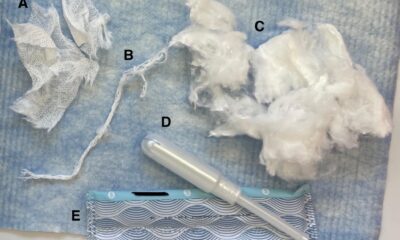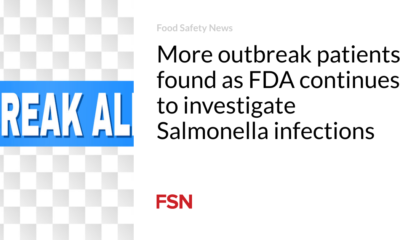Health
Research shows that fewer than 1 in 4 patients receive nutritional advice after a heart attack

Credit: Pixabay/CC0 public domain
Although diet is the largest contributor to premature death from heart disease in the United States, fewer than a quarter of people who suffer serious heart events receive nutritional advice in the aftermath, a study shows.
The study, led by a team at the University of Michigan Frankel Cardiovascular Center, followed nearly 150,000 patients seen in hospitals across Michigan for serious heart conditions, such as heart attack and heart failure, between late 2015 and early 2020.
Results published in Journal of the Academy of Nutrition and DieteticsResearch shows that doctors provided dietary advice within 90 days of hospital admission in only 23% of cases.
Such guidance could have occurred as part of a supervised cardiac rehabilitation program, or as part of a separate type of care called medical nutritional therapy.
This approach includes detailed nutritional assessments and targeted interventions led by registered dietitians.
“Nutritional counseling can reduce a person’s risk for cardiovascular episodes and disease, but our research shows that the vast majority of patients, all of whom are at risk after major cardiac events, do not receive this essential education,” says Brahmajee Nallamothu, MD. , MPH, senior author and professor of internal medicine-cardiology at UM Medical School.
Most of the documentation on dietary counseling occurred within cardiac rehabilitation; the program itself is considered underutilized, with only about 20-30% of eligible patients participating.
When cardiac rehabilitation was excluded, doctors offered nutritional advice only 5% of the time.
The reason for such a low percentage, researchers suggest, may be a lack of time for doctors to provide advice or expertise in this area.
“When patients receive this education, we have seen great results; some have seen their cholesterol levels cut in half within weeks,” said first author Eric Brandt, MD, MHS, FACC, director of preventive cardiology at Frankel Cardiovascular Center.
“However, physicians are often limited by the time required to manage other aspects of a patient’s condition. In addition, most cardiologists do not receive sufficient education to provide nutritional advice themselves.”
Women, adults over age 65, and patients with chronic kidney disease were all less likely to receive guidance from their healthcare providers.
Traditional Medicare participants were less likely to receive nutritional counseling than patients with private insurance, but more likely than those with Medicaid.
Currently, medical nutrition therapy is only covered for Medicare patients with diabetes and end-stage renal disease.
“In my long history as a registered dietitian nutritionist, I have been so grateful to see how many patients benefit from medical nutrition therapy, yet my patients and I are equally saddened to see the majority of people having to pay out of pocket or is denied due to lack of access to MNT services by Medicare,” says Geeta Sikand, MA, RDN, FAND, a registered dietitian nutritionist and associate professor of medicine in the department of cardiology at the University of California, Irvine.
Nearly half of American adults have poor diets, yet many struggle to afford healthy food. In 2022, the American Heart Association issued a position statement supporting efforts to increase “equitable access to nutritious, affordable food” in health care.
“Lifestyle is the cornerstone for preventing cardiovascular disease,” Brandt said.
“Without providing advice on behavior change when choosing the foods our patients should eat, many are left without the tools to manage their diets. I hope the landscape changes, with healthier eating becoming more supported and achievable. “
More information:
Eric J. Brandt et al., Documentation on nutritional counseling among patients recently hospitalized for cardiovascular disease, Journal of the Academy of Nutrition and Dietetics (2024). DOI: 10.1016/j.jand.2024.03.003
Quote: Research shows that fewer than 1 in 4 patients receive nutritional advice after a heart attack (2024, June 3), retrieved on June 3, 2024 from https://medicalxpress.com/news/2024-06-patients-dietary-heart. html
This document is copyrighted. Except for fair dealing purposes for the purpose of private study or research, no part may be reproduced without written permission. The content is provided for informational purposes only.













